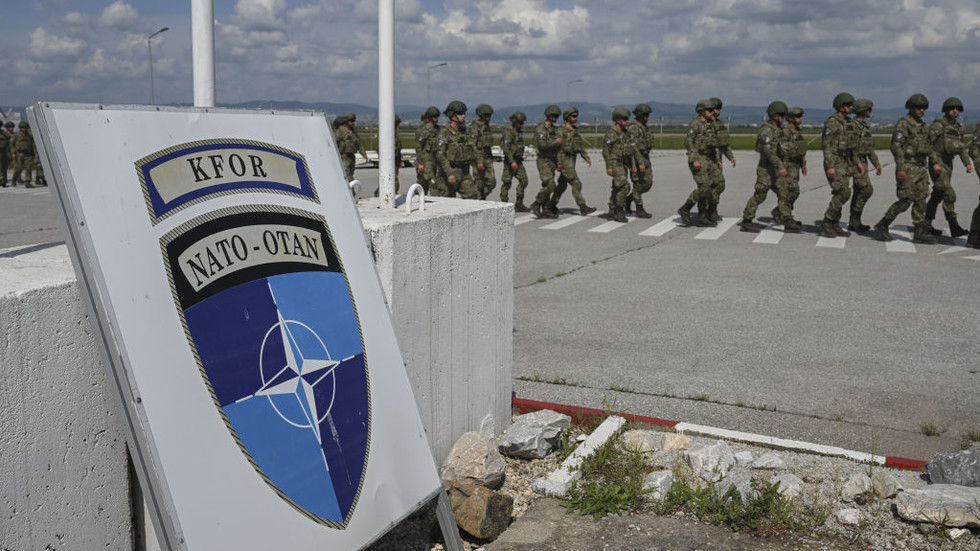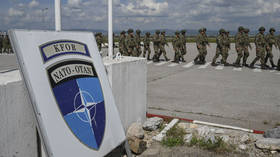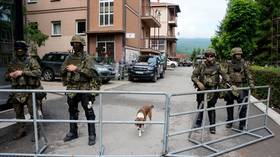
British soldiers have arrived as reinforcements for the KFOR peacekeeping mission

FILE PHOTO: NATO troops arrive in Kosovo, June 7, 2023. © Arif Hudaverdi Yaman / Anadolu Agency / Getty Images
Some 200 British soldiers landed in Kosovo on Friday to reinforce the NATO contingent in the breakaway Serbian province, following last month’s incident involving ethnic Albanian police. A Turkish general will assume command of the force next week.
Members of the 1st Battalion of the Princess of Wales’s Royal Regiment joined the 400 UK troops already in Kosovo. Earlier this week, the Romanian government pledged to send 100 more troops as well.
These deployments “are a prudent step to ensure KFOR has the forces it needs to fulfill its UN mandate to maintain a safe and secure environment and freedom of movement for all people in Kosovo,” the US-led bloc said in a statement.
NATO sent troops into Kosovo in June 1999, after waging a 78-day air war against Serbia on behalf of ethnic Albanian separatists in the province. The provisional government in Pristina declared independence in 2008, but has not been recognized by Serbia or about half the world’s countries, including Russia, China and India.

Read more
Leaders of both Albania and Serbia called on KFOR last week to take over policing duties in the Serb-majority areas in the north of the province. Serbian President Aleksandar Vucic said this was preferable to having police loyal to Kosovo Prime Minister Albin Kurti, whom he accused of “terrorizing” the local Serbs. Albanian Prime Minister Edi Rama argued this was the only way to stop Serbian militants from attacking the ethnic Albanian police.
London and Bucharest pledged reinforcements after the September 24 incident in Banjska, when three Serbs and one ethnic Albanian police officer lost their lives. Kurti claimed that Belgrade was behind the “terrorist attack” on Kosovo. Vucic denied this, arguing that the local Serbs may have taken up arms in response to Pristina’s repression, which he accused KFOR of tolerating.
KFOR’s current commander, Italian General Angelo Michele Ristuccia, told Albanian media on Friday that the presence of NATO troops “stopped the events from escalating” in Banjska. He is due to hand over command to Turkish General Ozkan Ulutas on October 10.
Türkiye has about 600 troops as part of KFOR’s 4,500-strong contingent. While Ankara has built good economic relations with Belgrade, it has also supplied Pristina with Bayraktar combat drones.




